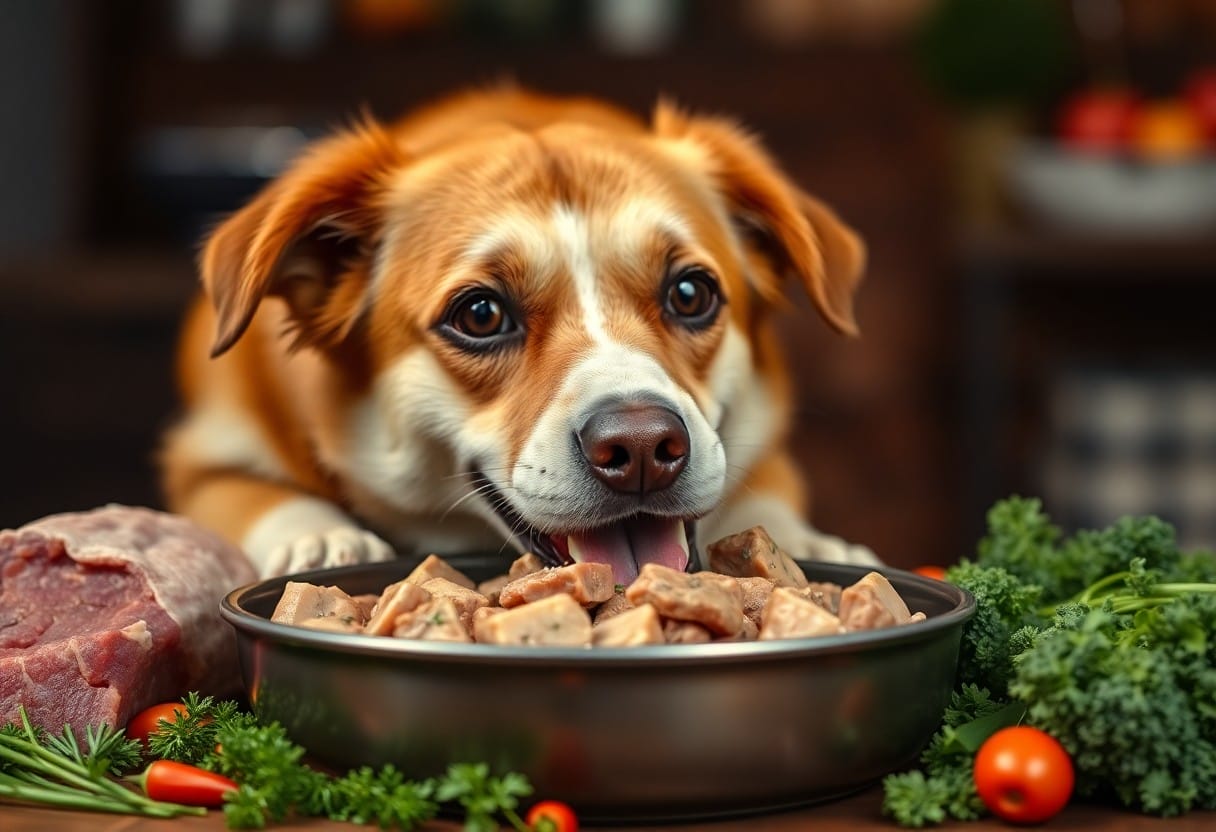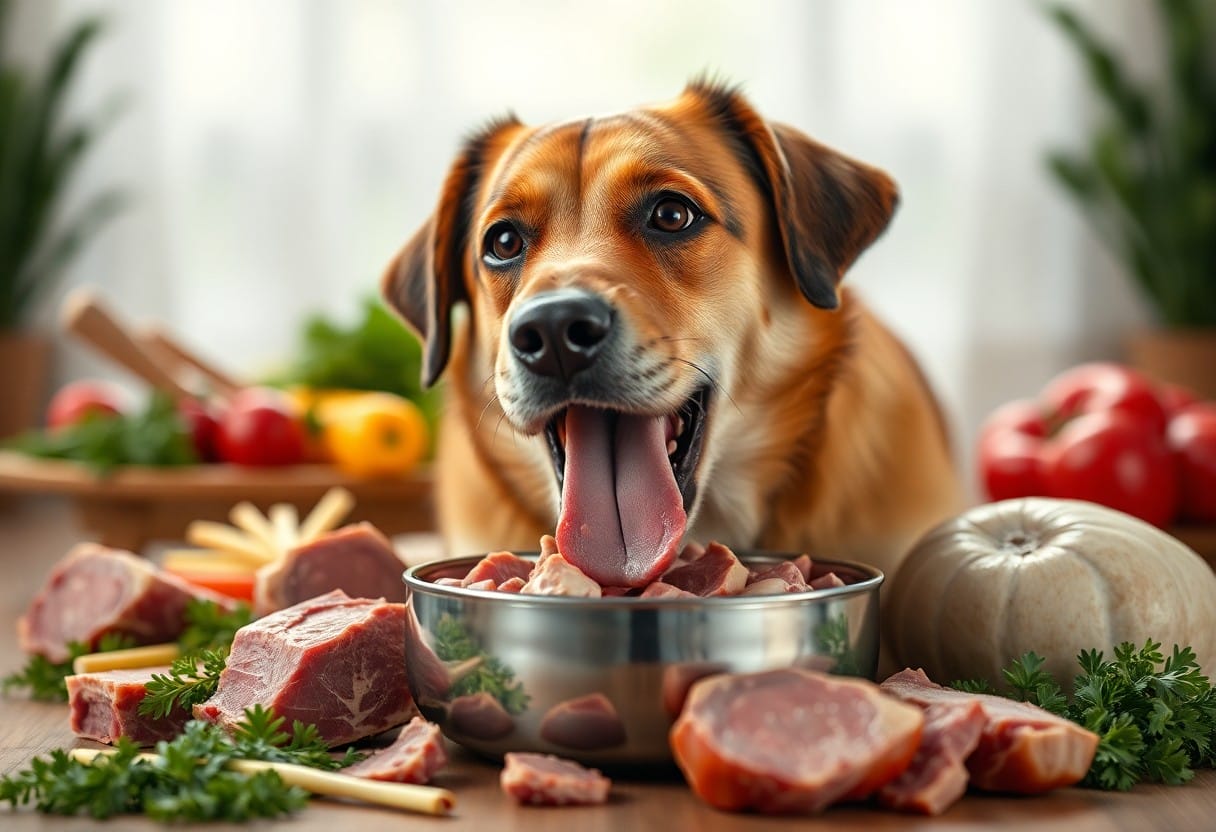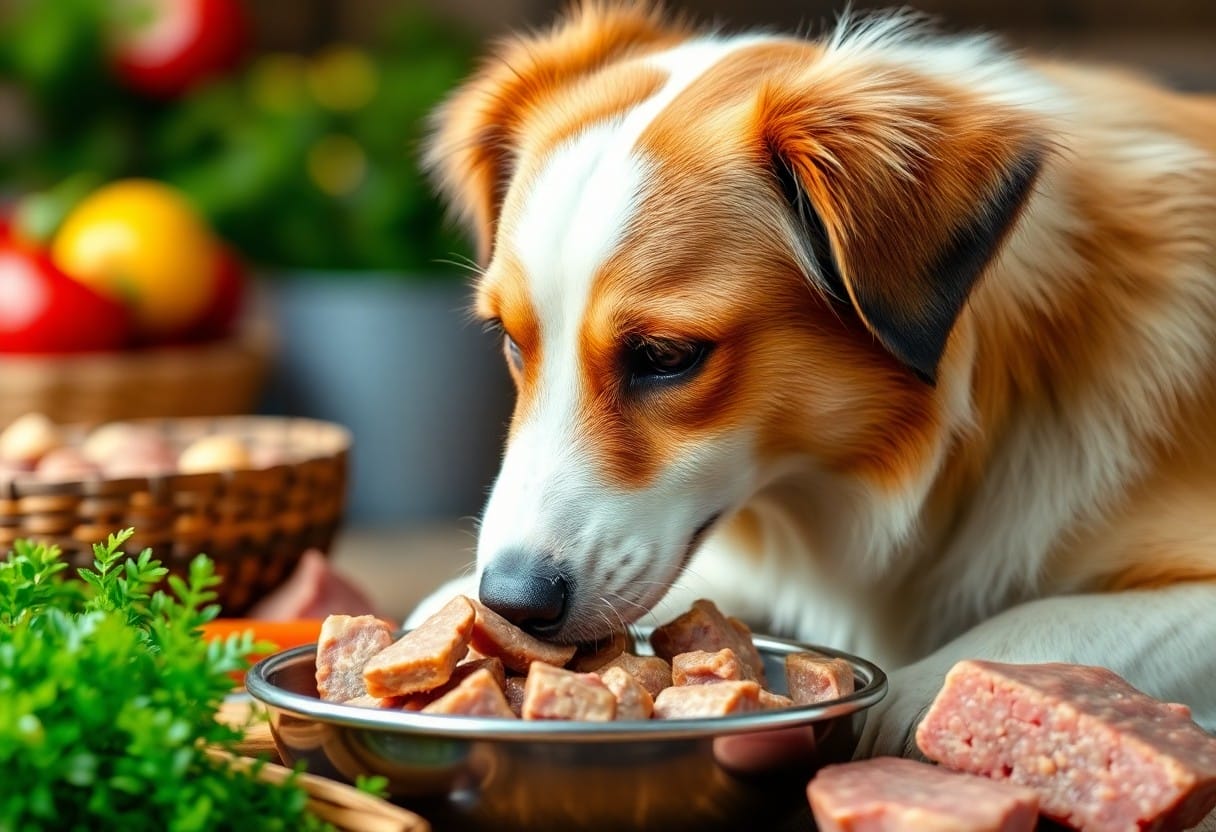
Lamb as a Novel Protein - Is It Right for Your Dog?
Share
Just when you think you've explored all the options for your dog's diet, you may encounter lamb as a novel protein. This protein source can be especially beneficial for dogs with food sensitivities, offering a delicious alternative to more common meats. However, it's important to consider factors such as your dog's overall health, potential allergies, and proper preparation techniques. In this post, we'll probe into the advantages and possible drawbacks of incorporating lamb into your dog's meals, ensuring you make an informed decision that supports their well-being.

Key Takeaways:
- Nutritional Benefits: Lamb provides a rich source of protein and imperative fatty acids, making it a valuable diet choice for dogs requiring a high-protein regimen.
- Allergy Considerations: As a novel protein, lamb can be beneficial for dogs with food sensitivities or allergies to more common proteins like chicken or beef.
- Diverse Diet: Incorporating lamb can help maintain a varied diet, potentially improving overall health and preventing monotony in dog food options.
The Nutritional Value of Lamb
The nutritional value of lamb makes it an excellent protein source for your dog. You can consider lamb as a novel protein for your dog due to its high protein content and low allergenic potential.
Protein and Essential Amino Acids
Besides being a rich source of protein, lamb also contains all important amino acids necessary for your dog's growth and maintenance. You will find that lamb is an excellent option if your dog has food sensitivities or allergies.
Vitamins and Minerals
On top of its protein content, lamb is also a good source of vitamins B12 and B6, as well as minerals like phosphorus and zinc. You can expect these nutrients to support your dog's overall health and wellbeing.
It is worth noting that lamb is also rich in omega-3 fatty acids, which can help reduce inflammation and promote healthy skin and coat. As you consider adding lamb to your dog's diet, you should be aware of the potential for high fat content, which can be a concern for dogs with weight issues or pancreatitis. You should always consult with your veterinarian to determine the best diet for your dog's specific needs and health status, especially if your dog has pre-existing medical conditions.

Health Benefits for Dogs
Clearly, lamb as a novel protein offers several health benefits for your dog, including reduced allergic reactions and improved digestion, making it an excellent option for your pet's overall well-being, with proven results in improving your dog's skin and coat health.
Hypoallergenic Properties
By introducing lamb as a novel protein, you can help minimize the risk of allergic reactions in your dog, as lamb is considered a hypoallergenic ingredient, reducing the likelihood of adverse reactions to food.
Digestive Health
The unique properties of lamb make it easily digestible for your dog, reducing the risk of digestive issues and promoting a healthy gut, which is necessary for your pet's overall health.
Consequently, you will notice an improvement in your dog's stool quality and a reduction in gas and bloating, making lamb an excellent choice for your dog's digestive health, and with its high nutritional value, you can be confident that your dog is getting the best possible nutrition for optimal health.
Potential Drawbacks and Allergies
Many dog owners consider lamb as a novel protein for their pets, but you should be aware of the potential risks. If your dog has allergies,
You may want to consider the potential drawbacks before making a decision.
Sensitivity and Allergic Reactions
Against the benefits of lamb as a novel protein, you should be aware of the potential for sensitivity and allergic reactions in your dog. You may notice skin irritations or digestive issues if your dog is allergic to lamb.
Quality and Source of Lamb
Allergies aside, the quality and source of lamb are necessary factors to consider when introducing it to your dog's diet. You want to ensure that the lamb is fresh, organic, and free from contaminants to minimize the risk of adverse reactions.
This is especially important if your dog has a history of food allergies or sensitivities. You should consult with your veterinarian to determine the best course of action and ensure that you are providing your dog with a balanced and healthy diet. By choosing a high-quality lamb source, you can help minimize the risk of adverse reactions and provide your dog with the nutritional benefits of this novel protein.
Incorporating Lamb into Your Dog's Diet
Once again, it's vital to introduce lamb into your dog's diet thoughtfully. Start by mixing it with their current food in small quantities, ensuring that your dog adjusts well to this novel protein source. Monitor your dog's reaction to the new food and consider it as a long-term dietary addition or a temporary dietary change depending on their needs. Lamb can offer numerous health benefits, such as improved coat quality and better digestion, making it a valuable option for maintaining your dog's overall wellness.
Choosing the Right Form
Your dog can benefit from various forms of lamb, including kibble, wet food, or raw. Each option has its advantages, so it's vital to consider your dog's preference, dietary needs, and any specific health concerns they may have. High-quality lamb-based dog foods with limited ingredients can help provide balanced nutrition while minimizing allergens, making it easier to cater to your dog's unique requirements.
Gradual Introduction
One important aspect of introducing lamb into your dog's diet is the gradual introduction process. Doing this helps your dog adjust to new flavors and ingredients without digestive distress.
It's vital to avoid sudden changes in your dog's diet, as this can lead to stomach upset, diarrhea, or other gastrointestinal issues. Instead, you should mix small amounts of lamb with their regular food, gradually increasing the proportion over about a week or more. Keep an eye out for any adverse reactions such as allergies or sensitivities, including itching or digestive upset. If your dog shows positive responses, like improved energy levels and a shiny coat, you can confidently continue incorporating lamb into their diet.

Special Considerations
For many pet owners, introducing a novel protein like lamb into your dog's diet requires careful thought. It's vital to consider your dog's unique health needs, allergies, and nutritional requirements. Always consult your veterinarian before making significant dietary changes to ensure that lamb is appropriate for your dog's specific situation.
Puppies and Senior Dogs
Between the delicate digestive systems of puppies and the potential dietary restrictions of senior dogs, introducing lamb should be done cautiously. Puppies require highly digestible proteins for growth, while seniors may need a tailored diet that accommodates age-related health issues.
Dogs with Specific Health Conditions
Around many dogs with health conditions, certain proteins can exacerbate issues or trigger allergies. If your dog has any pre-existing conditions, you must be particularly vigilant in observing their reactions to lamb.
Consequently, it's vital to monitor any signs of allergic reactions or intolerances when introducing lamb to your dog's diet. Some dogs may experience gastrointestinal upset, which can lead to vomiting or diarrhea. Additionally, dogs with renal issues may need to avoid excessive protein, including lamb, while those with allergies may react negatively to novel proteins. Always consult your veterinarian to ensure lamb is a safe and beneficial option for your dog's specific health condition.
To wrap up
Upon reflecting on lamb as a novel protein, you can consider its potential benefits for your dog. You should evaluate your dog's individual needs and sensitivities when deciding if lamb is a suitable option. If your dog has food allergies or intolerances, lamb might be a viable alternative. You can consult with your veterinarian to determine the best approach for your dog's specific dietary requirements, ensuring you make an informed decision about incorporating lamb into their diet.
Frequently Asked Questions
What is lamb as a novel protein and how does it benefit my dog?
A: Lamb is considered a novel protein because it is a unique protein source that is less likely to cause allergic reactions or sensitivities in dogs. This makes it an excellent option for dogs with food allergies or intolerances. Lamb is also rich in important nutrients like omega-3 fatty acids, vitamins, and minerals, which can help promote healthy skin, coat, and overall well-being in dogs.
Can I feed my dog lamb as a substitute for their regular protein source?
A: Yes, lamb can be used as a substitute for other protein sources like chicken, beef, or fish. However, it's important to introduce lamb gradually into your dog's diet to prevent digestive upset. Start by mixing a small amount of lamb with their regular food and gradually increase the proportion of lamb over time. Also, ensure that the lamb is of high quality and is balanced with other important nutrients to provide a complete and balanced diet.
Are there any potential health risks associated with feeding my dog lamb as a novel protein?
A: While lamb is generally considered safe for dogs, there are some potential health risks to be aware of. For example, lamb can be high in fat, which may not be suitable for dogs with obesity or pancreatitis. Additionally, some dogs may develop an allergy or sensitivity to lamb over time, so it's important to monitor their health and adjust their diet accordingly. Consult with your veterinarian before making any significant changes to your dog's diet.
Can puppies and senior dogs benefit from lamb as a novel protein?
A: Yes, puppies and senior dogs can benefit from lamb as a novel protein. Puppies can benefit from the rich nutrients and important fatty acids found in lamb, which can help support their growth and development. Senior dogs can benefit from the anti-inflammatory properties of lamb, which can help alleviate joint pain and other age-related health issues. However, it's important to choose a high-quality lamb product that is specifically formulated for your dog's life stage and health needs.
How can I choose the best lamb-based dog food for my pet?
A: When choosing a lamb-based dog food, look for products that are made from high-quality, named protein sources (such as lamb meal or deboned lamb) and contain whole food ingredients. Avoid products with fillers, by-products, or artificial preservatives. Also, consider your dog's individual needs, such as their life stage, health status, and activity level, and choose a product that is specifically formulated to meet those needs. Consult with your veterinarian for personalized recommendations on selecting the best lamb-based dog food for your pet.
